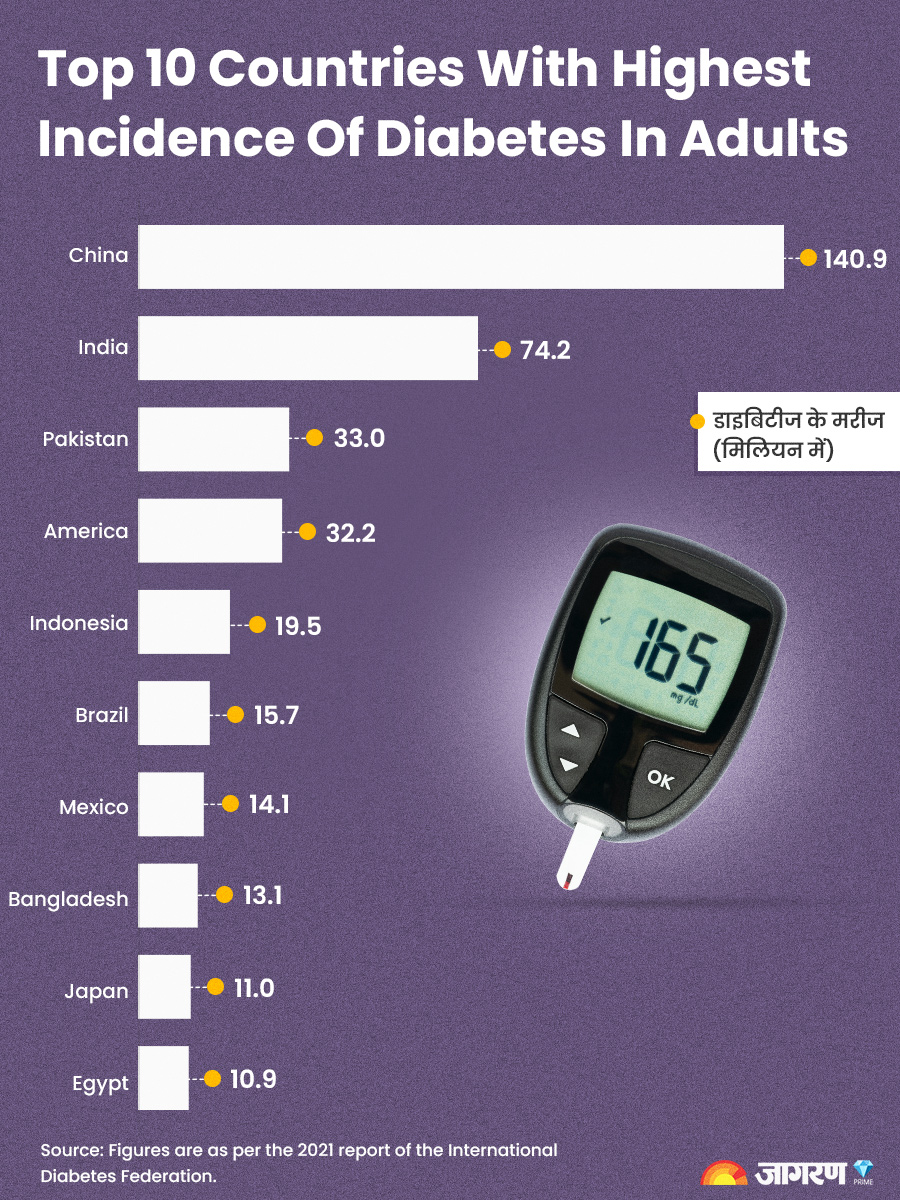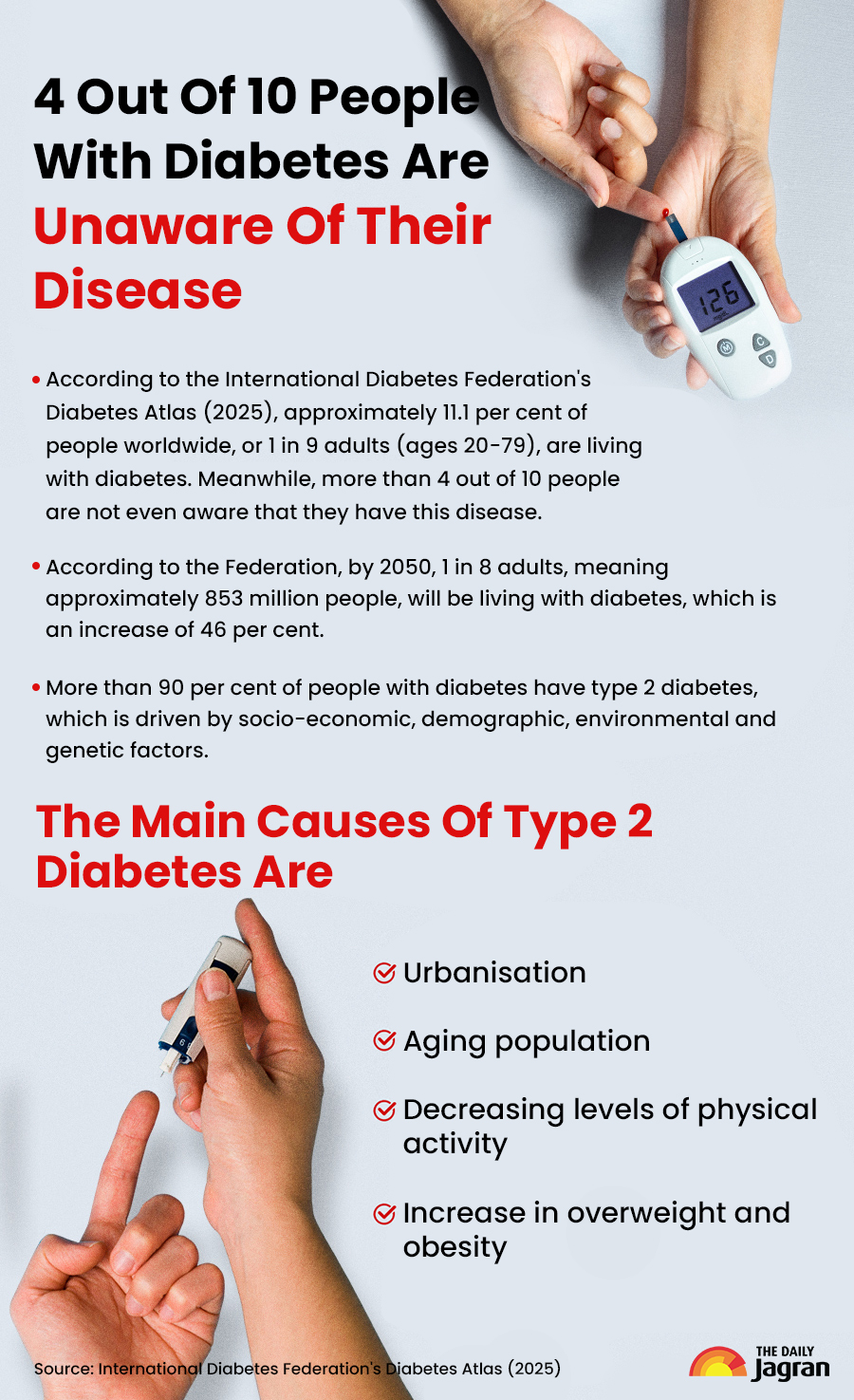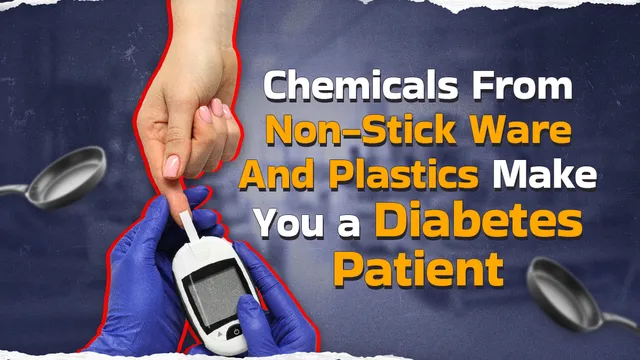- By Vivek Tiwari
- Fri, 01 Aug 2025 07:04 PM (IST)
- Source:JND
The non-stick utensils used in your kitchen, as well as waterproof items and chemicals used to protect surfaces in the home from stains, can be harmful to your health. A special type of chemical, PFAS (per- and polyfluoroalkyl substances), is used to make these items. A study has revealed that this chemical increases the risk of type 2 diabetes.
In one of their studies, scientists at Mount Sinai Hospital in New York found that people with higher levels of PFAS in their blood had up to a 31 per cent greater risk of developing diabetes. Scientists found that when this chemical enters our body, it disrupts the process of regulating sugar. The study states that for better health, along with paying attention to our diet and lifestyle, we must also be cautious of those chemicals that are silently harming our health.
In this study, researchers from Mount Sinai used data from more than 70,000 people. The levels of per- and polyfluoroalkyl substances were high in these people's blood samples. An increased level of this chemical in the blood disrupts amino acid biosynthesis and metabolism.
According to Damaskini Valvi, an associate professor at the Icahn School of Medicine at Mount Sinai, PFAS chemicals are a risk factor for several chronic diseases, such as obesity, liver disease and diabetes. These facts have been revealed in several studies.
In their study, researchers at NYU Langone Health in New York found that daily exposure to certain chemicals used in everyday plastic household items resulted in more than 356,000 deaths from heart disease worldwide in the year 2018.
This chemical, named phthalate, is used almost all over the world to make plastic products. The number of people dying due to this chemical in the Middle East and Asia is much higher compared to other countries, accounting for about three-quarters of the total deaths.
According to the report, the chemical DEHP used in plastics caused the highest number of deaths from heart disease in India, at 103,587. After this were China and Indonesia. Studies have found that this chemical causes inflammation in the heart's arteries, which increases the risk of a heart attack.

Dr Bhaskar Harshe of the Diabetes Association of India says that there are many chemicals that, upon entering the body, affect the flow of insulin. Some chemicals reduce the effectiveness of insulin.
For example, the milk of Jersey cows found in Northern Europe and its surrounding areas contains antibodies that affect a child's pancreas. Children who drink the milk of these cows have a much higher risk of type 1 diabetes. The regular intake of chemicals into the body in any form increases the risk of diabetes.
In India, a study conducted in Delhi and Chennai by the Centre for Cardio-metabolic Risk Reduction in South Asia (CARRS) found that air pollution also increases the risk of type 2 diabetes.
According to the study, when PM 2.5 particles, present in the air, enter the body, the risk of an increase in blood sugar levels rises. This is increasing the incidence of type 2 diabetes. The very fine dust particles and chemicals present in the air also increase the risk of diabetes.
The study was conducted on people living in urban areas. A total of 12,604 individuals—6,722 from Chennai and 5,342 from Delhi—were included in this study.
Narendra Saini, Chairman of the Scientific Committee of the Delhi Medical Association, says that along with chemicals, various types of pollutants present in the air enter the body through breathing, which increases stress and affects the flow of insulin. In such a situation, the risk of diabetes increases.
In India, several recent studies have also shown that long-term exposure to air pollution increases the risk of diabetes.

What are PFAS chemicals?
Per- and polyfluoroalkyl substances, or PFAS, are a group of man-made chemicals. Since the 1950s, PFAS have been used in many consumer products and industrial processes. They have properties that resist heat, grease, and water.
There are thousands of types of PFAS. This chemical is primarily used in waterproof fabrics like rain jackets, umbrellas and tents; grease-resistant paper and surfaces; non-stick cookware; personal care products such as shampoo, dental floss, nail polish and eye makeup; and stain-resistant coatings on carpets and clothing.
What kind of health risk do PFAS chemicals pose?
According to the Wisconsin Department of Health Services in the United States, exposure to PFAS chemicals can increase cholesterol levels and heighten the risk of thyroid disease. The risk of certain cancers also increases. During pregnancy, it elevates the risk of serious conditions such as high blood pressure or pre-eclampsia.

